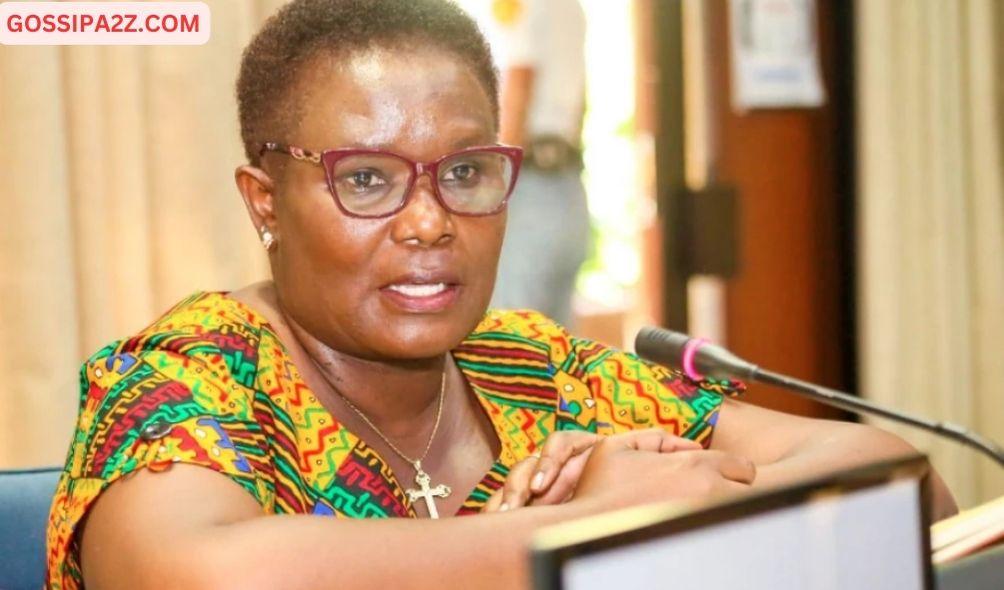Day of Reckoning: Mwangaza Faces Senate Plenary in Impeachment Hearing Starting Monday
Meru Governor Kawira Mwangaza is set to face a critical moment on Monday as the Senate kicks off her impeachment hearing.
A Gazette Notice from Speaker Amason Kingi indicates that the proceedings will span two days.
“Special Senate sessions to address the impeachment charges against Hon Kawira Mwangaza, Governor of Meru County, will occur on Monday, August 19, 2024, and Tuesday, August 20, 2024, in the Senate Chamber in Plenary format.”
Mwangaza will be tried by the full Senate after Senators last week rejected a proposal to establish an 11-member select committee for her case.
This marks Mwangaza’s third impeachment attempt in two years, with MCAs approving the ouster motion on August 8.
Previously, plenary sessions have intervened
She will again face a plenary session, similar to her second impeachment, where Senators cleared her of all seven charges.
In her first impeachment attempt, Mwangaza was tried by an 11-member Senate panel.
This followed a vote of 49 MCAs in favor of the motion versus 17 against, with three members absent.
The motion, introduced by nominated MCA Zipporah Kinya, accused Mwangaza of multiple offenses including gross constitutional violations, misconduct, and abuse of office.
Kinya alleged that Mwangaza illegally dismissed Virginia Kawira from her role as secretary of the county public service board.
“It is only the county assembly that has the authority to revoke the secretary’s appointment,” Kinya stated during the motion’s presentation.
The deputy majority leader also criticized Mwangaza for failing to appoint chairpersons for various boards as legally required, thus leaving them inactive.
Additionally, Mwangaza is charged with ignoring County Assembly recommendations to fire County Secretary Kiambi Athiru and Chief of Staff Harrison Gatobu for constitutional breaches.
The MCAs also accused Athiru and Gatobu of improper hiring and firing practices, which Mwangaza allegedly failed to address.
Regarding constitutional violations and other laws, Mwangaza is also accused of improperly dismissing several officials including John Ntoiti (CEO of the County Revenue Board), Paul Mwaki (CEO of Liquor Board), Kenneth Mbae (MD of Meru Microfinance Corporation), and Joseph Mberia (CEO of MEWASS).
The MCAs claim this was an overreach of appointing authority, contrary to specific sections of the Meru County Revenue Board Act and the Meru County Investment and Development Corporation Act.
Committee vs. Plenary
Senators last week decided that Mwangaza will be tried by the full 67-member Senate rather than a select committee.
They dismissed a motion proposing that an 11-member committee, which included Senators Hillary Sigei, Abdul Haji, Wahome Wamainga, David Wafula, Gloria Orwoba, Karen Nyamu, Issa Juma, Eddy Oketch, Shakilla Abdalla, Betty Montet, and Beatrice Akinyi, handle the impeachment.
The majority argued that a plenary session ensures fair treatment for both Mwangaza and the MCAs.
Migori Senator Eddy Oketch, who was slated for the committee, supported the committee approach as it could provide a comprehensive solution.
“We need a committee to not only decide on impeachment but also to propose lasting resolutions for Meru,” he said.
Vihiga Senator Godfrey Osotsi also favored the committee for its broad approach, suggesting it would better address the county’s complex issues.
“It allows for a more thorough review beyond just impeachment, addressing serious county problems,” Osotsi noted.
The county might even face dissolution.
ALSO READ:
- Inside Job Exposed: Kenyan Prison Wardens Convicted for Orchestrating Daring Terrorist Escape
- Uganda Pulls the Plug: Nationwide Internet Blackout Ordered Days Before Crucial General Election
- African Elections Under the Spotlight as Zambia Turns to Kenya Ahead of 2026 Vote
- “Two Drug Barons in Cabinet?” Kenya Government Fires Back as Ex-Deputy President Sparks Explosive Drug Claims
- Kenyan Court Freezes Use of Private Lawyers by Government, Sparks Nationwide Legal Storm
“There may be situations where suspending the county could be necessary, a decision suited for a committee since plenary cannot forward such a report to the president,” he added.
Isiolo Senator Fatuma Dhulo criticized the committee route, emphasizing that the plenary approach would offer more transparency to Meru residents.
“This isn’t just about impeachment; it’s a significant issue for the Meru people, who need to see the full process,” Dhulo argued.
Murang’a Senator Joe Nyutu supported the plenary approach, highlighting its proven effectiveness in previous cases.
“This will be a chance for senators to understand county issues firsthand,” Nyutu said.
Bomet Senator Hillary Sigei, presumed chair of the committee, also advocated for the plenary, prioritizing the interests of the Meru people over personal ambitions.
“Although I could chair the committee, the plenary remains the best way to serve the people of Meru,” Sigei affirmed.
Day of Reckoning: Mwangaza Faces Senate Plenary in Impeachment Hearing Starting Monday
